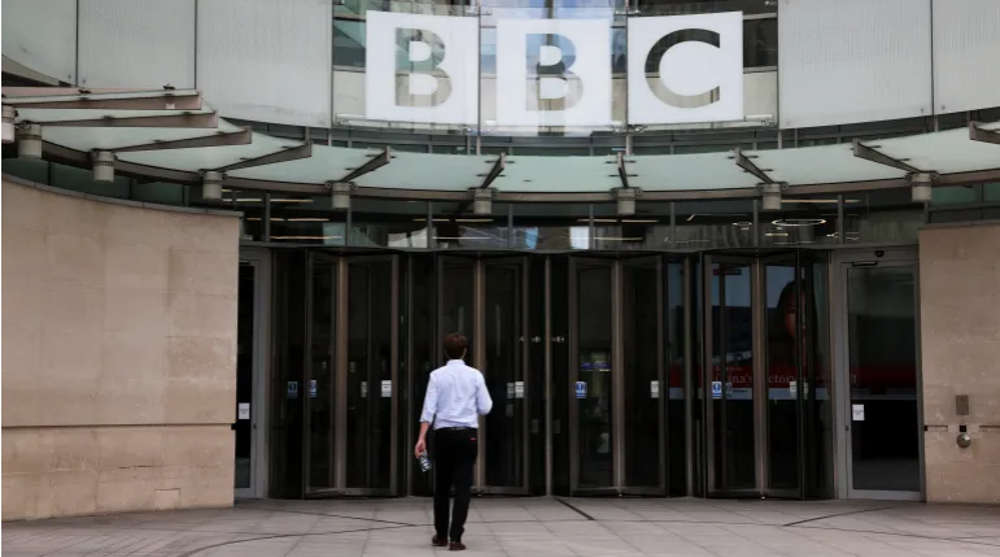
The BBC, the British public service broadcaster, has been beset by controversies since the Israeli regime's genocidal war began last year. (Photo by Aljazeera)
London, December 31 (RHC)-- BBC staffers have revealed that editor Raffi Berg exercises full control over the outlet’s online reporting on Israel’s genocidal war in Gaza, ensuring all coverage favors Israel, according to a new report.
Drop Site News, in a report published on December 28, said it spoke to 13 current and former staffers who said that the BBC’s coverage consistently dehumanizes Palestinians and ignores Israeli crimes in Gaza where close to 45,500 Palestinians have been killed.
“[Berg’s] entire job is to water down everything that’s too critical of Israel,” one former BBC journalist said. Another BBC journalist said Berg plays a key role in a broader BBC culture of “systematic Israeli propaganda.” “How much power he has is wild,” said another journalist.
“There was an extreme fear at the BBC, that if you ever wanted to do anything about Israel or Palestine, editors would say: ‘If you want to pitch something, you have to go through Raffi and get his signoff,” another journalist explained.
In one instance, Berg downplayed Amnesty International’s report on Israeli genocide in Gaza. He chose a headline emphasizing Israel’s denial—“Israel rejects ‘fabricated’ claims of genocide”—and delayed publishing the story for 12 hours, limiting its online reach.
The interviewed journalists noted that the Amnesty report wasn’t covered on BBC’s flagship programs: BBC One’s News At One, News At Six, News At Ten, or BBC Two’s Newsnight.
“Anyone who writes on Gaza or Israel is asked: ‘Has it gone to edpol [editorial policy], lawyers, and has it gone to Raffi?’“ another journalist said.
Berg, author of a book praising Mossad’s clandestine operations, exerts significant influence over global perceptions of Israel’s Gaza war because, with 1.1 billion visits in May, the BBC’s pro-Israel bias can significantly shape the narrative. Berg’s bias is also evident in language choices for coverage.
Terms like “massacre,” “slaughter,” and “atrocities” are prominently used for Hamas but seldom for Israel’s actions, as noted by BBC Arabic correspondent Rami Ruhayem.
The BBC often obscures Israeli responsibility in headlines and uses terms favored by the Israeli military to downplay war crimes, such as describing forcible transfers or ethnic cleansing of Palestinian civilians as “evacuations.”
The report also notes that when the BBC does mention Israel as the perpetrator, it uses the caveat “reportedly.” When the then-Israeli war minister Yoav Gallant publicly vowed to impose a “full siege” on Gaza while calling Palestinians “human animals” the story received just one mention in any BBC online content.
BBC journalists have urged management to address the bias and balance coverage, but their concerns have been ignored. Many correspondents have raised issues about Berg’s power to reframe stories without success.
Requests for emphasizing Israel’s restriction of BBC access to Gaza, providing context about the occupation, and clarifying the displacement of Palestinian refugees beginning in 1948 have gone unheeded, according to the report.

